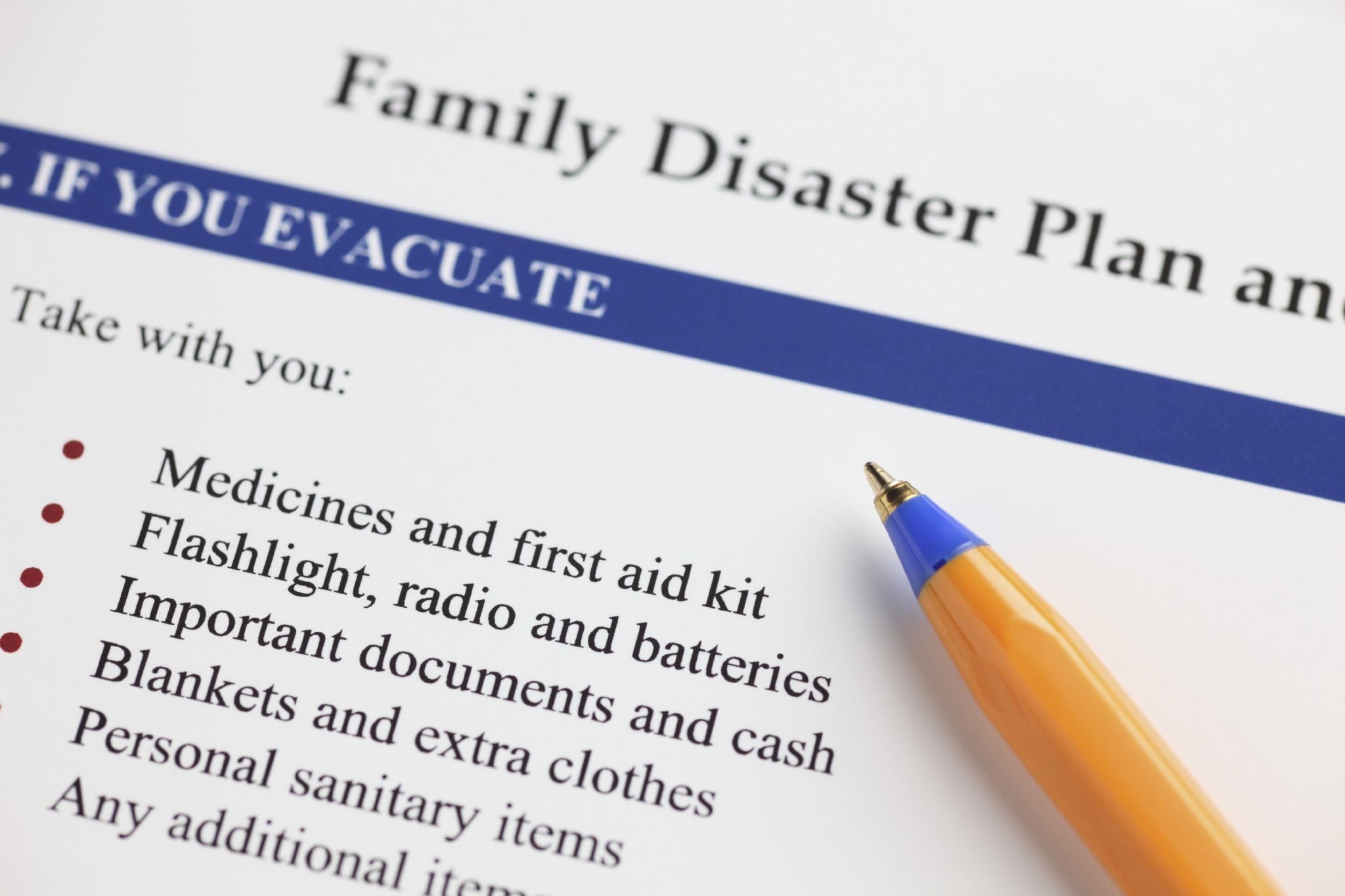
Every family needs to be prepared for emergency situations. You never know what can happen and how that situation might affect your family.
There could be a fire, an earthquake, a flood or any other kind of natural or societal disaster can happen.
It is best to be prepared for them all. That is the best way to protect your family.
Writing An Emergency Preparedness Plan, you need to account for all of your family members, any family member with special needs, your children’s needs, pets etc.
Have a sound financial plan as well. Set out cash funds just in case. Prepare for anything that’s possible in your area but also for unexpected events.
*Note from Dave: I wrote the kindle ebook pictured above to help new preppers make a plan. This post wasn’t written by me, but this is something I used to do a lot, and Emergency Preparedness was my undergraduate Major. Many articles on this site relate to this topic.
Here is a list of tips on creating an emergency preparedness plan:
State what the roles of each family member are
In case of an emergency, each family member needs to know what to do. You can’t lose precious time on organization when an emergency happens and this is why you need to organize everything in advance. Every family member should know where to go. Plan for your kids being in school and let them know where you want them to go if an emergency strikes then. Also, plan for you not being at home in those situations and figure out where to go, what to do and what’s the fastest way to get to your supplies.
You can also do an occasional run through of who does what in each situation to make sure that your plan runs safely, smoothly and effectively.
Create emergency kits
Emergency kits are a good way to get all you need at once. You can purchase them, already made in many stores but you can also create your own. No matter what you decide, make sure that there is enough water and food for at least three days, that there is a first aid kit and some tools of protection as well. “Keep them handy at all times – you can put one in your car, keep one at work if possible, a couple in your basement or somewhere in your house and you could also make sure that your children have mini-kits with them at all times”, – explains Johnnie Miller, a Safety Manager at Ukwritings.
Practice your plan
Once you are done creating your plan, it’s a good idea to practice it. That’s the only way to memorize it perfectly. Run these plans in different situations – at home, do run-throughs of what happens if you are not at home, study the roads to see which can take you home faster. Teach your family members how to use some of the essential tools and how to defend themselves. Show them how to handle certain objects or how to drive if they are old enough.
Make a list of necessary supplies
As certain emergencies strike, you will likely not have time to go to the store and purchase everything that you need. Instead, make a list of all the things you’ll need and slowly, as you have available funds, purchase those items. Update this list frequently – there is no way you can think of everything that you’ll need on your first try. Plan for at least three days or longer.
This list should be easy to read and check off, so you should probably use formatting tools like StateOfWriting or Boom Essays to make it as comprehensible as possible. Don’t put anything that isn’t crucial on this list – keep in mind that you’ll have to carry these things yourself, so anything that’s not essential isn’t welcome.
I have an incremental emergency kit list to show how you can build a great kit without scarifice.
Make a communication strategy
Communication strategy is just as important as the rest of your plan. You never know what can happen and that’s why you need to organize your family and let them know how to communicate in case of emergency. Create a sheet of phone numbers each family member should know and call in case that they are alone and separated from the rest. Make sure that everyone has a phone, coins or prepaid cards if they need to reach you. Establish an ICE name and number and make sure that everyone in your family has it.
Make an evacuation strategy
Discuss as a family where you could go in case of an emergency. State who is in charge of what – shutting off utilities, taking care of pets, taking emergency supplies, driving etc. Make separate plans for each situation.
Stay informed
Best way to be prepared is to be informed. “Do some research on what is a possibility based on your area’s history and prepare for that. Stay informed on current events that might affect you on sites that give this sort of information, watch news, weather reports, read newspapers etc”, – says Earlene Boone, a Safety writer at Essayroo and Academ Advisor.
Conclusion
It’s better to be prepared that sorry when a disaster happens. Having a solid plan ensures that all of your family members will be safe and taken care of in case of an emergency.

